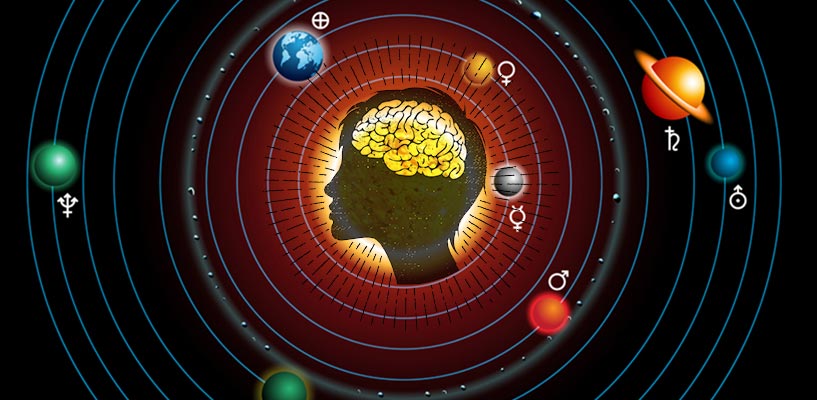Astrology has long been used as a tool for self-reflection, understanding personality traits, and gaining insights into life’s challenges. In the context of mental health, astrology can offer a unique, albeit non-clinical, perspective. While it is not a substitute for professional mental health care, many people find value in using astrology as a complementary tool for understanding their emotional and psychological well-being.

How Astrology Relates to Mental Health:
- Self-Awareness and Reflection:
- Astrology helps individuals explore their personality traits, emotions, and thought patterns based on their natal chart.
- Understanding planetary influences, such as the Moon’s role in emotions or Mercury’s connection to communication, can provide insight into emotional triggers and coping mechanisms.
- Identifying Strengths and Challenges:
- Natal charts highlight areas of strength and potential challenges. For example:
- A strong Moon placement may indicate emotional stability.
- Challenging aspects between Saturn and the Moon might suggest tendencies toward self-doubt or anxiety.
- Recognizing these patterns can encourage individuals to address their challenges constructively.
- Natal charts highlight areas of strength and potential challenges. For example:
- Periods of Emotional Flux:
- Transits and progressions (current planetary movements relative to the natal chart) can signify periods of emotional upheaval or growth.
- For example, a Saturn return (around ages 28–30 and 58–60) often prompts significant life changes and introspection, which can impact mental health.
- Tools for Emotional Regulation:
- Astrology offers tools for managing stress and emotions, such as understanding favorable planetary periods or using astrological insights to plan significant life events.
- Techniques like journaling during challenging planetary transits or meditating on specific archetypes (e.g., the nurturing Moon or the disciplined Saturn) can promote emotional balance.
- Validation and Support:
- Astrology can validate feelings and experiences, making individuals feel understood and less alone in their struggles.
- It can also help identify supportive elements in one’s chart, such as aspects that indicate resilience or optimism.
- Mind-Body Connection:
- Medical astrology associates zodiac signs and planets with various body parts and health concerns.
- While not scientifically validated, some use these associations as a framework for understanding stress or physical manifestations of emotional states.
Limitations and Cautions:
- Not a Substitute for Professional Help: Astrology should not replace therapy, counseling, or medical treatment for mental health conditions. It is a tool for reflection, not diagnosis or cure.
- Avoiding Determinism: While astrology may suggest tendencies, it does not dictate fate. Believing in rigid outcomes can increase anxiety rather than alleviate it.
- Personal Interpretation: The subjective nature of astrology means that its interpretations can vary. Professional astrologers can provide guidance, but personal discernment is crucial.
Practical Applications:
- Using Astrology for Mental Health Support:
- Track your emotional patterns through lunar cycles to understand mood fluctuations.
- Explore your natal Moon sign for insights into emotional needs and nurturing habits.
- Use planetary retrogrades (e.g., Mercury retrograde) as opportunities for introspection and realignment.
- Seeking Professional Guidance: Work with both an experienced astrologer and a licensed mental health professional
- If you’re seeking Jyotish in Ahmedabad with a focus on mental health and emotional well-being, several reputable astrologers offer personalized consultations that integrate astrological insights with holistic remedies. Here are some notable practitioners:

